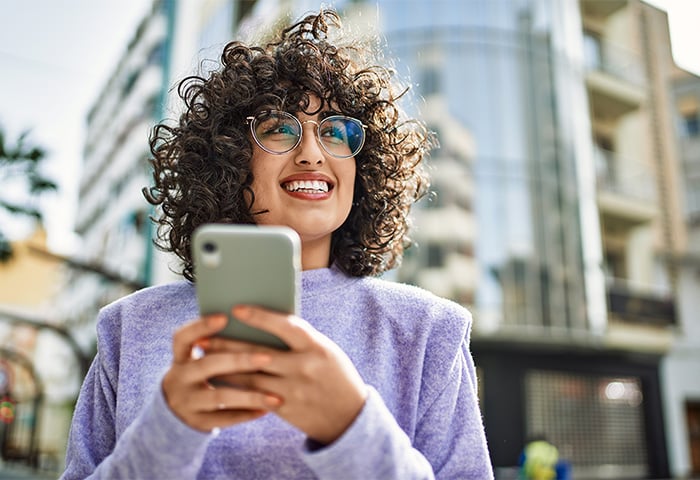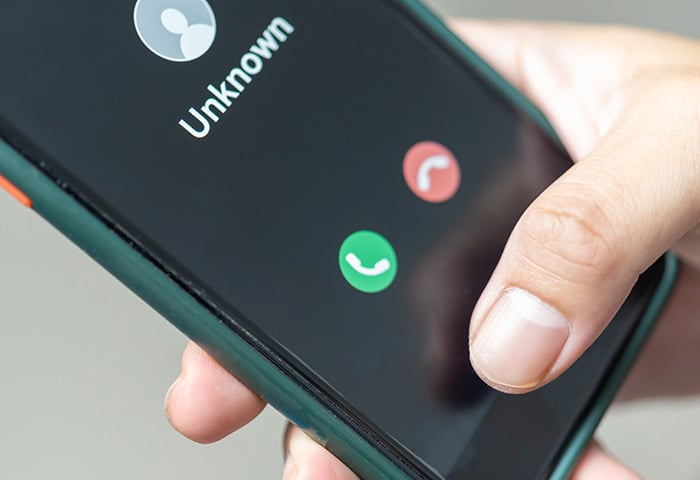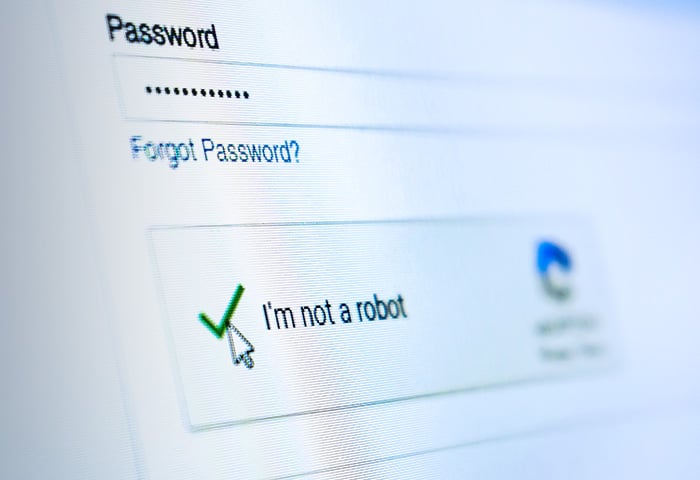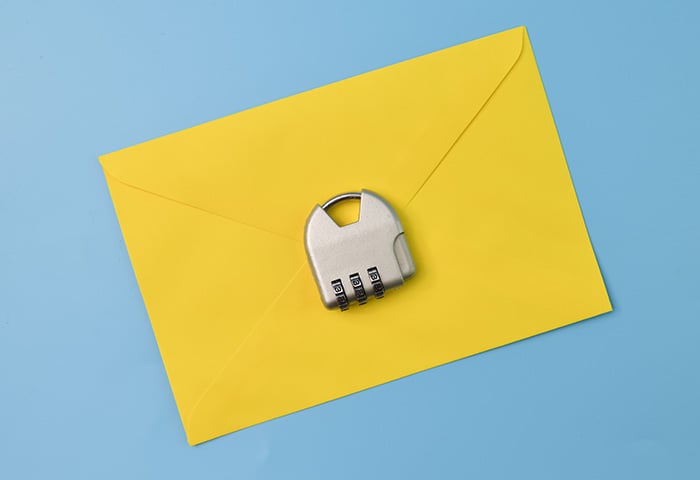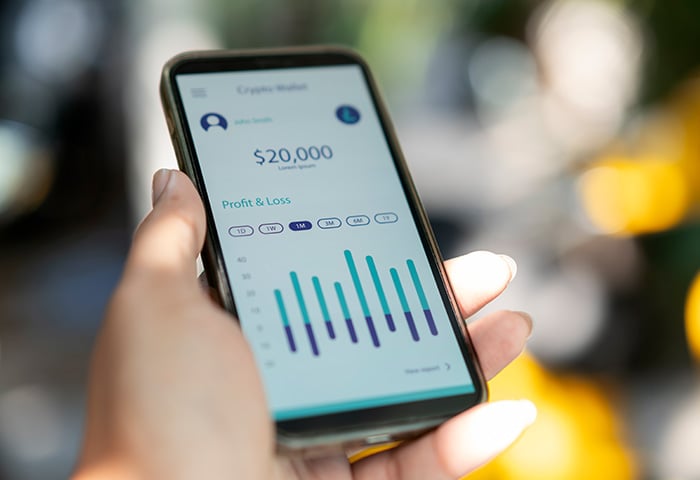The basics of tracking
First of all, your phone can track a lot of basic things. It knows which way you’re holding it (so it can display the screen correctly). It knows which way you’re moving through space and how fast you’re doing so.
Online trackers can also detect information about your device (its brand and age) and how you’re using it (including your browser, timezone, settings, what font you use, your location, and your IP address) and they use this information to establish your digital fingerprint, which is unique to you and helps trackers follow you around the web.
And every interaction with your technology throughout the day helps make this fingerprint more accurate.
In the morning
If you’re like most of us, you wake up to the sound of your smartphone’s alarm going off. If you’re using a sleep app, or one of the many fitness trackers with sleep monitoring technology, your snooze data is being collected. Right away, this brings up tensions between the apps’ utility vs. our privacy.
It might sound creepy to have an app tracking every minute you sleep, but that’s how these apps work — they need to learn your habits in order to function; for example to tell you if you slept well that night and what you can do to improve your sleep. Without being able to record your data and synthesize it into patterns, they would be essentially useless.
Do you also turn on your smart lights or adjust the temperature with a smart thermostat in the morning? Most internet-connected devices improve their utility by learning our habits and reacting to them; for example, by adjusting the temperature and lights to desired settings based on our normal usage. But we shouldn’t forget that they’re learning intimate details about our private life in the process.
Do you listen to tunes while you’re getting ready in the morning? Well, whichever app you’re jamming out to is invariably collecting data on your preferences, too. Again, it does this so it can be more useful — in this case, by recommending music it thinks you’ll enjoy.
And now it’s time for breakfast. Do you use any diet tracking apps like MyFitnessPal, LoseIt, or Chronometer? That’s giving away a lot of information about the food and drinks you buy.
Do you talk to Alexa, Echo, or another smart speaker to get the weather or your appointments for the day? They’re recording everything you say. And the implications of that are fairly obvious.
That raises the question: how much do these apps guard your data? Unfortunately, 70% of apps share your data with third party sources, so not very much. We should also wonder how safe our personal data is from breaches or hackers. Again, the news is not good. From apps like MyFitnessPal being breached to entire app backends leaking data due to poor configuration, these products don’t have a great record of being responsible with user data.
Commuting to work
These days, people are working from home more than ever before. But no matter if your commute is five seconds or five hours, your phone knows both your location and how fast you’re moving through space.
Are you walking to work? You probably have an app like Apple Health or Google Fit tracking your steps. Are you driving? Your phone is taking note of how fast you’re going and how much traffic there is.
Have you ever wondered how apps like Google Maps or Waze know if there’s traffic on your route? Well, they’re tracking the location of you and everyone else, and using composite data to figure out if there are more cars on the road than usual.
Are you taking public transportation to work, and maybe scrolling through social media on the way? Don’t worry, Facebook probably isn’t eavesdropping on your private conversations, but they still know an insane amount about you and use this information to serve you targeted ads.
If you spend your commute searching the internet, reading news stories, or listening to podcasts, your interests and habits are being tracked and linked to your digital fingerprint as well. But this shouldn’t be a problem if you’re taking the car to work, because you don’t look at your phone while you’re driving… right?
At work
How does your company keep track of your work hours? If you’re lucky enough to work from home, there’s a decent chance your employer forced you to install one of dozens of time management tools that track your online activity remotely, such as Time Doctor or ClickTime.
The way these tools track your online activity is obvious, but they also collect data like your name, your financial situation, and your commercial history for the purposes of marketing. That means it's not only your boss who knows what you do during your lunch break.
Still working in your office? Then maybe you’re familiar with IoT devices called beacons. Rather than relying on punch cards to track who’s coming and going, beacons sit next to the door and send a notification to the phones of people who walk past it, assuming they have the right app installed. If you’re an employee, you can check in that way… with no way to fudge your work hours with the help of a morally flexible friend. Unless you loan them your phone, of course!
Workplace smart devices of all kinds are coming, by the way, and will probably become ubiquitous in the near future.
Regardless of if your work uses a beacon, if you’re at a computer for work or personal use, you’re being tracked around the web. Advertisers and companies are able to follow everything you do with the aforementioned digital fingerprint and build quite a detailed profile on you. Take Google for example, which uses its many different apps to gather data on you.
Google and its apps know: your interests (search, Chrome), upcoming plans (Calendar), where you’ve been and plan to go (Maps and Waze), products you’ve bought or considered buying (search, Ads), what you look like (Google Photos), what you sound like (Google Assistant), who your friends and coworkers are (Gmail, Hangouts), where you live and work (Google Maps), what music and celebrities you like (Youtube), and your health goals (Google Fit), just to name a few examples.
Google compiles all of the information they have on you together, giving them deeper insights that allow them to infer even more personal details about you, like your ethnicity, your political and religious beliefs, if you have any dietary restrictions, how healthy you are, and if you plan to have children.
And that’s just Google!
After work
If you go home after work and want to unwind, do you like to browse the net? Peruse social media? Watch some Youtube or Netflix? Again, your preferences are being recorded to be turned into future targeted ads. Trackers can see a frightening number of details, down to the granular level. For example, they know which articles you read, which ones you only skim briefly, which videos you watch, which videos you watch for ten seconds then skip, and more.
You’ve probably been out there surfing the web for a while now, so just think about how much sensitive information data miners can know about you: your medical history, info about your finances and credit score, any — you know — sensitive content you like to look at.
Even if your preferred after work activity is hanging out with friends or attending an event in real life, keep in mind that can also be tracked by whatever apps you used to plan the event with your pals, plus you and your friends’ location data.
If you just like hanging out at home, any smart devices like a fridge can gather data on you, too, such as your common food purchases, eating habits, and family demographics.
An even deeper level of personal info
Your smartphone also has even more intimate information about you, like your biometric data (if you use your fingerprint or face recognition to sign in), usernames and passwords (if you’ve chosen to have them saved), and metadata (things like call and SMS logs). While advertisers might not be able to track these things about you (yet), it’s still worth considering how much of our personal data we trust to our mobiles… and how dangerous it could be if that data were ever leaked.
Who exactly is doing the tracking and how do they do it?
Aside from the big names like Facebook, Google, Apple, Amazon, and Microsoft, 75% of websites track you. Top sites can have up to 1000 trackers hidden in them, and some companies have 3000+ pieces of information about you, which, unfortunately, tends to be about 99% accurate.
For example, let’s take reading a news article. When you click to arrive on the site, it could have one tracker, or it could even have up to 40 trackers. Then as you interact with the site’s content and ads, they learn more about you and use this information to help build a profile on you. Rinse and repeat, for nearly every site on the web.
Many, if not most, of these trackers come in the form of cookies. Cookies are oftentimes necessary for a website to run in the first place — for example, they ‘track’ things like if you’re logged in to an account or which items you have in your shopping cart. These session cookies, which only last as long as you’re on a site, aren’t what we’re complaining about. Rather, it’s tracking cookies, the ones that follow you between sites, that help advertisers and data miners build their file on you.
Is there any way to limit tracking?
Tracking has become incredibly insidious, and some apps and smart devices simply must track your data or habits in order to work properly. But, luckily there are still some ways you can keep a tighter lid on your personal data.
Use an adblocker
Adblockers won’t do anything to stop tracking efforts, but they do allow you to avoid some of the consequences of your data being mined all the time. By blocking the ads that your data says you’re interested in, you won’t have to see non-stop banner ads for dehumidifiers just because you bought one once for your mother.
Use a VPN
A VPN can encrypt your connection and hide your location: very useful if you want to browse safely on public wi-fi, but unfortunately it does very little to actually stop these kind of tracking efforts, since most of the data used to make your digital footprint isn’t hidden by a VPN (like your browser settings and your computer’s configuration). That said, using a VPN to connect through another location could help you avoid specific trackers, and avoid certain price hikes.
Delete your cookies periodically
Cookies are the main tool that companies and websites use to follow you online, and they’re everywhere. Fortunately, it’s pretty easy to get rid of them, no matter what device you’re using or what browser you prefer. We’ll even help you do it.
Use an anti-tracking software
If you’re serious about keeping your online life private, you need to use anti-tracking software. It will disguise and scramble all the data that’s usually used to make your digital fingerprint, feeding false information to the companies and websites trying to follow you online. They’ll be chasing phantoms, while you can browse worry-free.
...sadly, anti-tracking software only works for computers and phones. There’s no way to use it for other smart devices, like a microwave or TV… yet.
Check app settings
It might not be fun to hear, but a lot of the time, apps are able to gather data on you because you give them permission to. Don’t blame yourself: who really reads the terms of service, anyway?
Fortunately, many apps and services can have their settings adjusted, so you can demand they stop tracking your data. For example, you can force Google to stop tracking specific things about you. Or, you can cancel their permissions (through your phone’s settings) so they won’t be able to access your microphone, camera, location data, or other information.
Buy dumb products when you can
Smart products are all the rage right now. But some manufacturers are in a race to introduce new products, and they sacrifice good security to release things faster than the competition. So you should be skeptical. Do you actually need a smart toilet? You might want to stick to the normal version for now on some products.
So there you have it: a whole day of tracking, and all the personal info you’re sharing on a nearly minute-by-minute basis. Now that you’re more aware, we recommend taking some time to review your apps and devices and make sure you feel comfortable with what you’re sharing — and limiting access if not.


